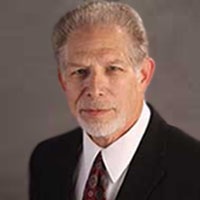Eden Mills Felony Lawyer, Vermont
Not enough matches for Eden Mills Felony lawyer.
Below are all Eden Mills Criminal lawyers.
Kenneth L. Geduldig
✓ VERIFIEDCriminal, Divorce & Family Law, Estate, Real Estate, Personal Injury
Kenneth Geduldig proudly serves Burlington, Vermont and the neighboring communities in the areas of criminal defense, divorce & family, estate, real e... (more)
Jacob S. Oblak
Divorce & Family Law, Criminal, Civil & Human Rights, DUI-DWI
Status: In Good Standing
Robert Henry Backus
Traffic, Divorce & Family Law, Criminal, Collection
Status: In Good Standing Licensed: 16 Years
Sara Ellen Davies Coe
Real Estate, Wills & Probate, Workers' Compensation, Felony, Family Law
Status: In Good Standing


